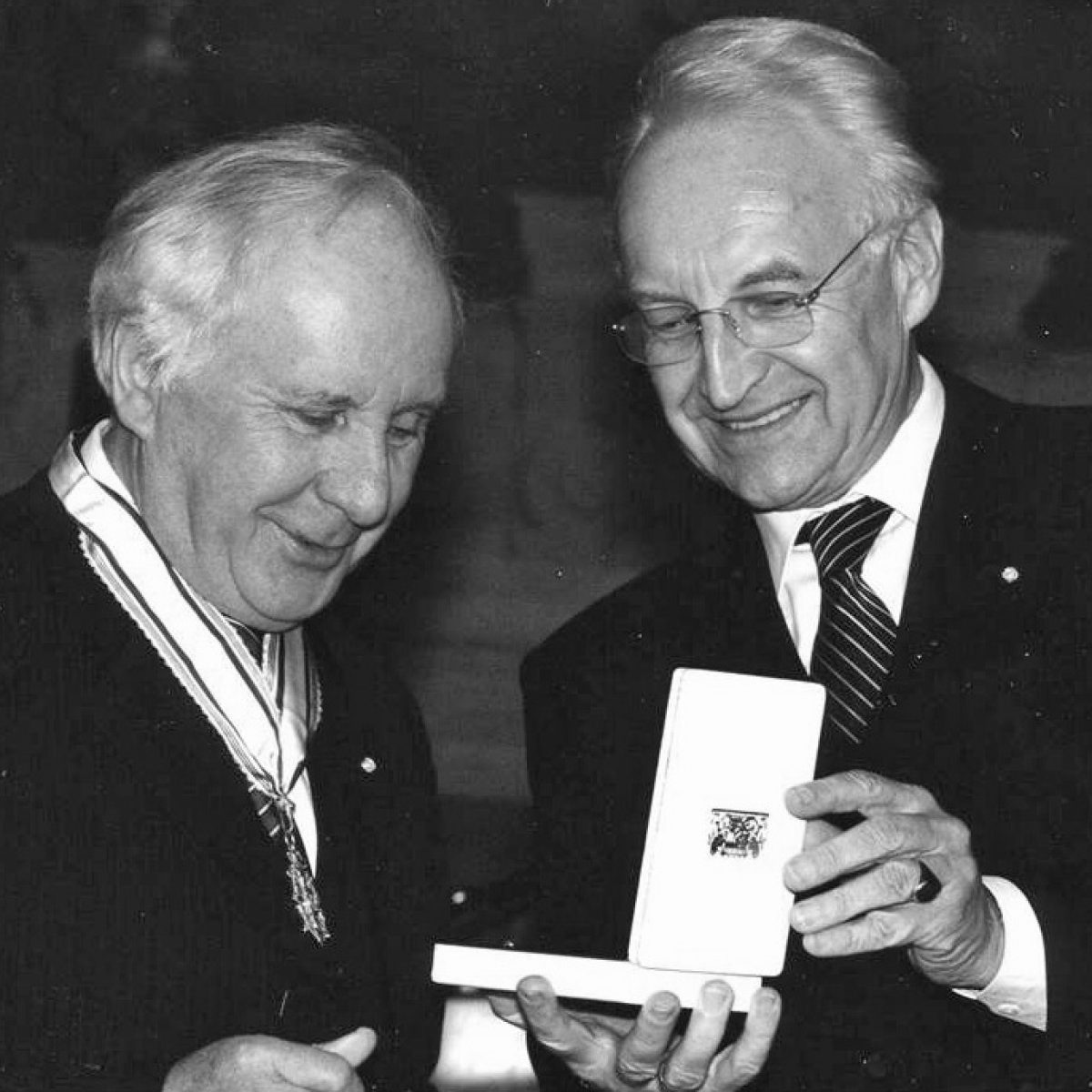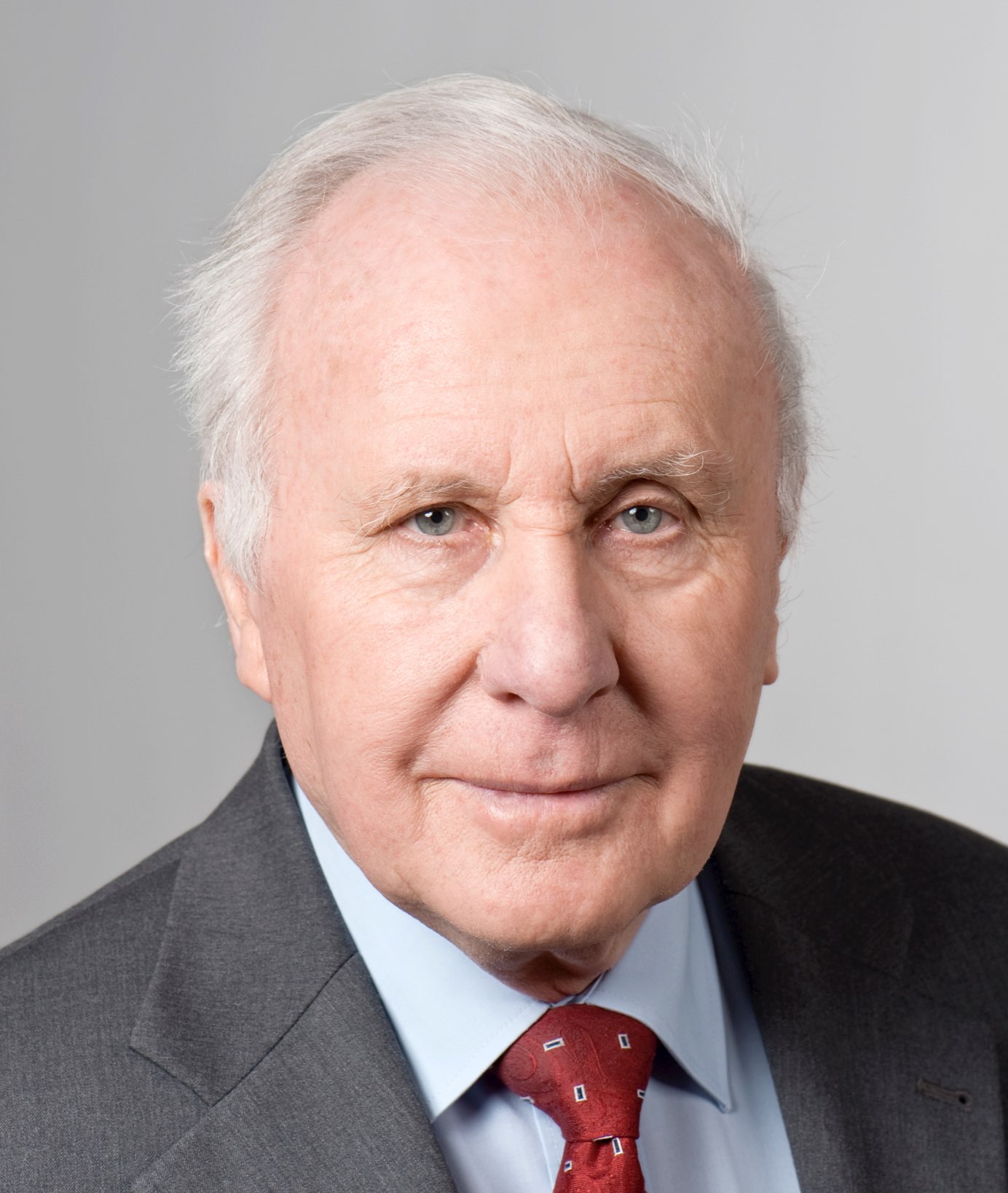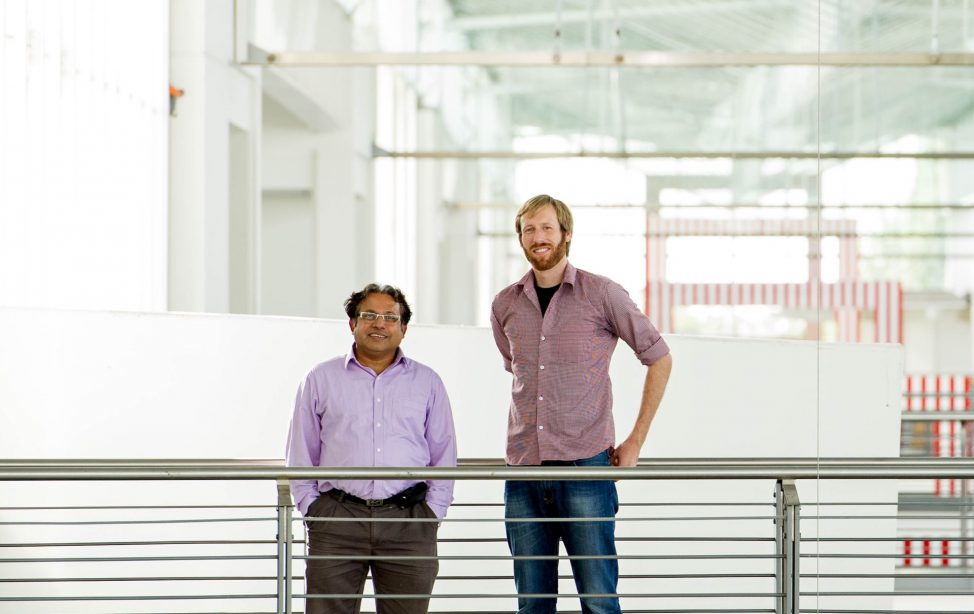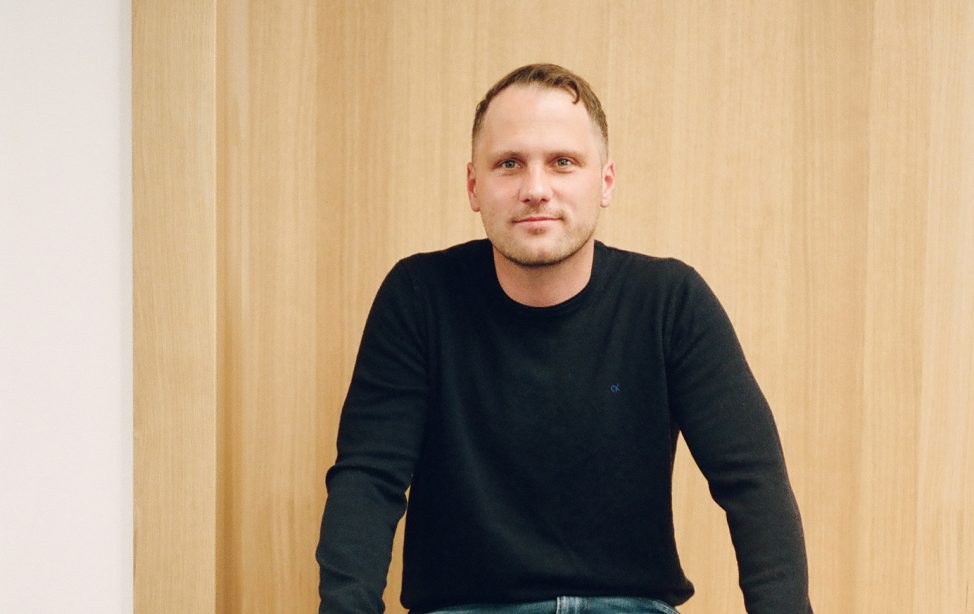
For his excellent scientific research Prof. Dr. Dr. E.h. mult. Franz Mayinger received several awards. In 2001 he was awarded the Bavarian Maximilian Order for Science by the then Bavarian Prime Minister Edmund Stoiber (Image: Bayerische Staatskanzlei).
Pragmatic schedule
Franz Mayinger’s career as one of the most distinguished minds in German engineering was already apparent during his studies and doctoral studies. While still a student, he was involved in a turbine construction project at TUM. In his professor’s office as a doctoral student he was chosen for a management position at MAN in Nuremberg. Even though his scientific career picked up speed quickly, he had planned neither his research focus nor his subsequent career. “My career was a chain of coincidences”, he said. “The only thing I had planned from the very beginning was to change my place of residence every seven to ten years.” Because the young researcher was dreading ay potential routine. When, at the end of the sixties, he was appointed to the newly created Chair of Process Engineering at the University of Hanover, he accepted it without further ado – because after seven years, it was time for a change of location anyway.
A passion for his profession
Franz Mayinger’s decision in favour of the university was initially due to his pragmatic plan for a rotational change of location, but this changed rapidly. He realised that, in contrast to working in the industry, he could now not only finally do what he wanted, but also that his academic responsibilities led him back to his great passion: Physics. As soon as laser technology was introduced, Franz Mayinger used it and developed his own optical measuring methods.
TUM offered me great freedom in my research.
With an unquenchable thirst for knowledge and great enthusiasm, Franz Mayinger conducted research at TUM in the fields of Thermofluid Dynamics, Combustion Technology, material properties and heat transfer phenomena, particularly in connection with multi-phase flows as they occur in reactors and process engineering apparatuses. Together with his team, he consistently expanded the Chair of Thermodynamics and quickly gained international renown.
Highest standards for nuclear reactor safety
In addition to his research, Franz Mayinger was also active in many committees, for example as a member of the Reactor Safety Commission at the Federal Ministry of the Interior for more than two decades and later at the Federal Ministry for the Environment. In 1983, 1984 and 1990, he also chaired the committee. Furthermore, from 1992 to 1995 he was Chairman of the Major Accidents Commission of the Federal Ministry for the Environment, Nature Conservation and Nuclear Safety.
Together with his doctoral supervisor, TUM professor and Thermodynamics pioneer Ernst Schmidt, and TUM professor Ulrich Grigull, Franz Mayinger was one of the only three German researchers to receive the renowned Max Jakob Memorial Award. In 1991, he received the coveted award for his pioneering achievements in the field of holographic interferometry and multiphase flow, as well as for his visionary leadership in establishing the highest safety standards for nuclear reactor safety. “I just wanted to do my job with curiosity”, he said modestly. “I have to admit that I have never seen my work as a profession, but as a hobby.”

Franz Mayinger (Image: Astrid Eckert, Andreas Heddergott/TUM).
Degree Mechanical Engineering 1955, Doctorate 1961
From 1951 to 1955 Franz Mayinger studied Mechanical Engineering at TUM and then conducted research for a further six years at the Institute of Thermodynamics. In 1961 he completed his doctorate. From 1962 to 1969 he was Chief Engineer and Head of the Research Department for Nuclear and Process Engineering at MAN Nuremberg. From 1969 to 1981 he was Professor and Director of the Institute for Process Engineering at the University of Hanover. In 1981 he followed the call to return to his alma mater. For eighteen years until his retirement in 1999, he headed the Chair of Thermodynamics at TUM.
In 1989 Franz Mayinger created the Bavarian Research Association for Systems Engineering, in which research institutes and industrial companies cooperate closely. From 1995 to 1999 he was Founding Dean of the Faculty of Applied Natural Sciences at the University of Bayreuth, where he subsequently became Chairman of the University Council.
From 1998 to 2002 he was appointed the first Academic Director of the Bayerische EliteAkademie, which he initiated himself. Franz Mayinger was a member and Chairman of the Reactor Safety Commission, then Chairman of the Federal Ministry’s Major Accidents Commission. In addition to advising on reactor safety issues, he was involved in science policy consulting: he was a member of the Science Council and of the Scientific and Technical Advisory Board of the Bavarian State Government.
Franz Mayinger has received several awards for his excellent scientific research and his multifaceted commitment. In 1990 he was awarded the German Federal Cross of Merit 1st Class, the coveted Max Jakob Memorial Award, the Bavarian Order of Merit, the Bavarian Environmental Prize, and the Bavarian Maximilian Order for Science and Art. Franz Mayinger held an honorary doctorate from the University of Hanover and an honorary doctorate from the University of Bayreuth, where he was also an honorary senator. He was a member of the Bavarian Academy of Sciences, the German Academy of Engineering Sciences (acatech) and the European Academy of Sciences and Art.
Franz Mayinger lived in Munich with his wife. He had three children, his youngest son has also studied Mechanical Engineering at TUM.
Professor Dr. Franz Mayinger was appointed TUM Emeritus of Excellence by TUM president Prof. Dr. Wolfgang A. Herrmann in 2007.
He passed away in June 2021 at the age of 90.


